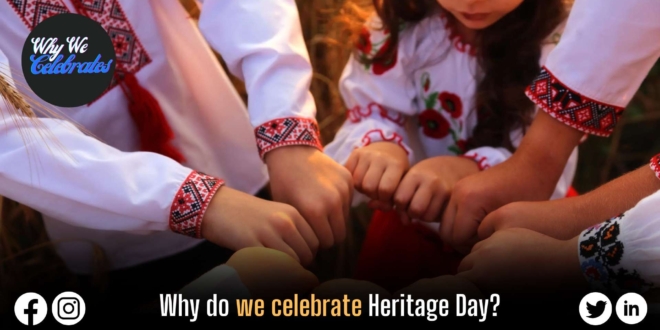South Africa, the Rainbow Nation, celebrates Heritage Day with gusto, embracing the rich tapestry of its cultures, traditions, and unity. In this article, we delve into the profound significance of Heritage Day and explore the various aspects that make it a cherished national celebration.
Heritage holds a profound significance in our lives. It serves as a link between our past and present and provides invaluable insights into the cultures, traditions, and legacies that have shaped us. It’s a place where our stories, struggles, victories, and a source of inspiration for the future.
Why is Heritage Day Important?
Our heritage reminds us of where we come from and helps foster a sense of belonging and identity. It teaches us lessons from history and offers guidance on how to navigate the challenges of the present and build a better future. Additionally, heritage can serve as a tourism drawcard and thus contribute to the economic growth of a country. Heritage is a cultural exchange that bridges the gaps between different communities and nurtures mutual understanding.
Celebrating Diversity
Heritage Day is a day to celebrate the multitude of cultures, traditions, and languages that coexist within South Africa. On this day, South Africans come together to embrace their roots and honor their unique cultural backgrounds.
Braai Day
One of the most popular and widely practiced traditions associated with this Day is the South African “braai.” A braai is a barbecue, and South Africans of all backgrounds gather to grill meat, share traditional dishes, and enjoy each other’s company.
Cultural Celebration
Heritage Day also provides an excellent opportunity for communities to showcase their distinct cultural practices. Across the country, people participate in parades, dances, music performances, and exhibitions that highlight their heritage.
National Dress
Another captivating aspect is the display of traditional attire. On this Day, people from all backgrounds proudly wear their ethnic clothing, reflecting their unique cultural heritage.
Promotes Unity and Tolerance
It serves as a powerful tool to promote unity and tolerance in a country whose history is marred by cultural divisions. It encourages open dialogue and respect for different traditions, fostering a sense of national pride and togetherness among South Africans of all backgrounds.
How Can You Celebrate Heritage Day?
Celebrating one’s heritage and culture is a beautiful journey of self-discovery and connection with one’s roots. It’s a way of honoring the traditions, values, and customs passed down through generations. Here are some heartwarming ways to celebrate this special day:
- Culture Cook-Off: Gather friends and family for a culinary adventure! Each participant can whip up a dish that reflects their heritage. Whether it’s a spicy curry, a comforting stew, or a traditional dessert, the kitchen becomes a melting pot of flavors and memories.
- Storytelling Sessions: Set the scene with flickering candles and cozy blankets. Share tales of your family’s past—those whispered secrets, epic adventures, and everyday moments that shaped your lineage. Stories bridge generations and weave a beautiful narrative of resilience and love.
- Site Exploration: Take a pilgrimage to one of South Africa’s cherished heritage sites. Whether it’s the awe-inspiring Cradle of Humankind, the historic Robben Island, or the ancient Mapungubwe, these places hold echoes of our collective history.
- Learn a New Phrase: Expand your linguistic horizons! Pick a phrase from a language you’re unfamiliar with. It could be a Zulu greeting, a Xhosa proverb, or a Sotho expression. Language connects us, and learning even a snippet fosters understanding.
- Braai (Barbecue) Bonding: Fire up the grill! Invite friends over for a classic South African braai. The sizzle of boerewors, the aroma of mieliepap, and the laughter shared around the fire create lasting memories. Don’t forget the chutney and tomato smoor!
Encourage employees to wear their cultural dress.
In essence, heritage is a treasure trove of knowledge, a source of pride, and a connection between generations, making its preservation and appreciation a vital aspect of our cultural heritage.
History of Heritage Day
September 24 was previously known in South Africa as Shaka Day, commemorating the Zulu King of Shaka. In 1995, it became Heritage Day, celebrating the diverse cultures that make up the nation.
5 Facts About Heritage Day
- Also known as National Braai Day.
- Africans make up 79% of South Africa’s population.
- 1995 was the first year when it was celebrated.
- South Africa has 10 heritage sites declared by UNESCO.
- Braais vary from Potjies, Shisha Nyama, and Spit Braais.
Why We Love Heritage Day?
We love because it celebrates our roots and cultural diversity. It’s a time to honor our ancestors and their traditions. Heritage Day brings people together to celebrate with delicious foods, lively music, and dance. This is a reminder of the unique stories that make up our collective identity. It’ i’s ultimately a day of cherishing and preserving what makes us unique.
Next Heritage Day Dates
- 2024: September 24 (Tuesday)
- 2025: September 24 (Wednesday)
- 2026: September 24 (Thursday)
- 2027: September 24 (Friday)
- 2028: September 24 (Sunday)
Heritage Day in South Africa is not just a celebration of the past; it is a celebration of the nation’s resilience, unity, and commitment to preserving its rich cultural heritage. It’s a day when the people of South Africa come together, despite their differences, to appreciate and embrace the diverse tapestry of cultures that make their country unique. In doing so, Heritage Day plays a vital role in building a more inclusive and harmonious South Africa, one that can serve as a model for the world in celebrating cultural diversity.






